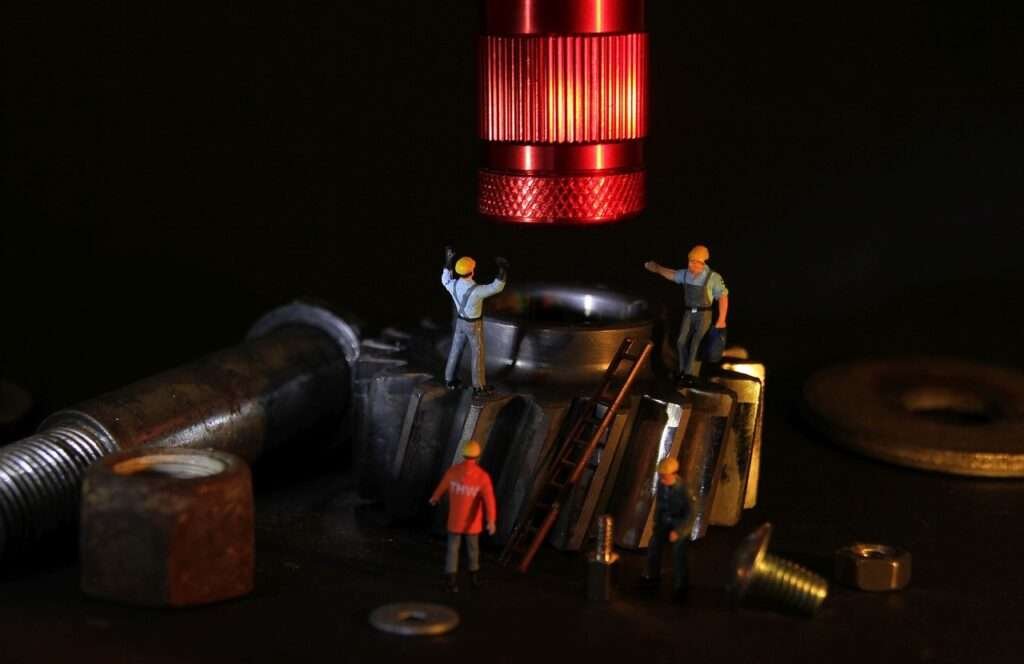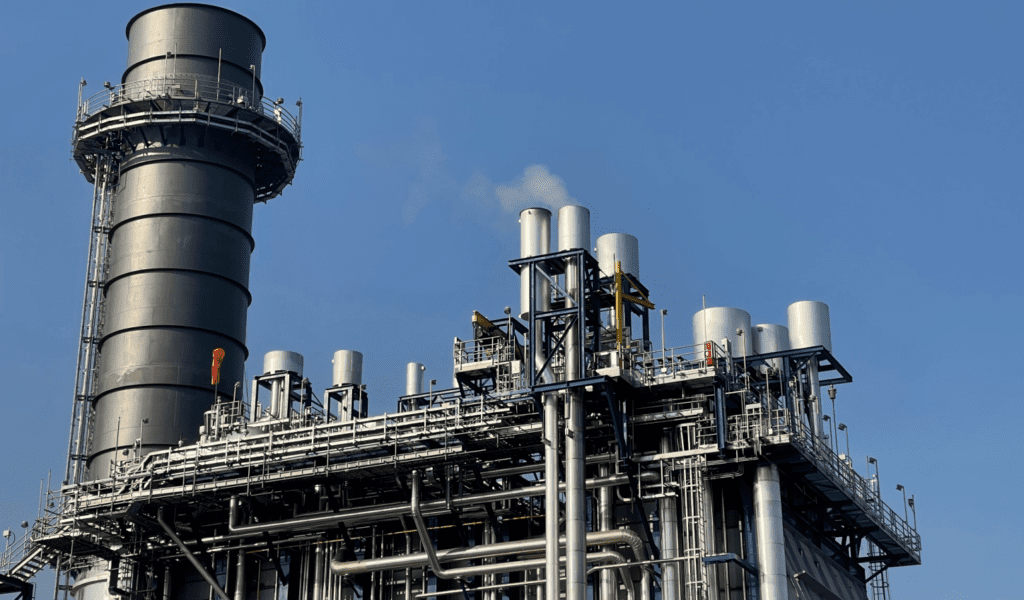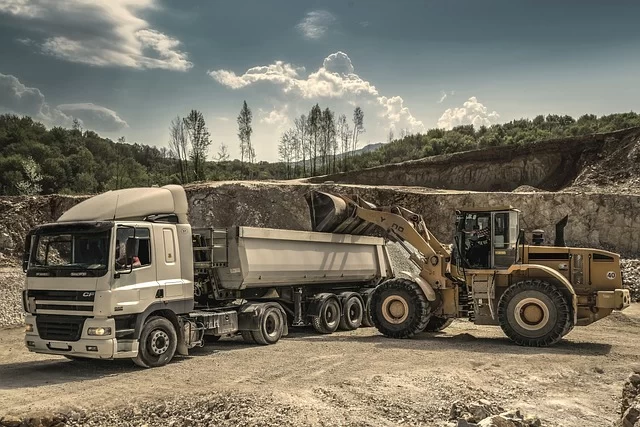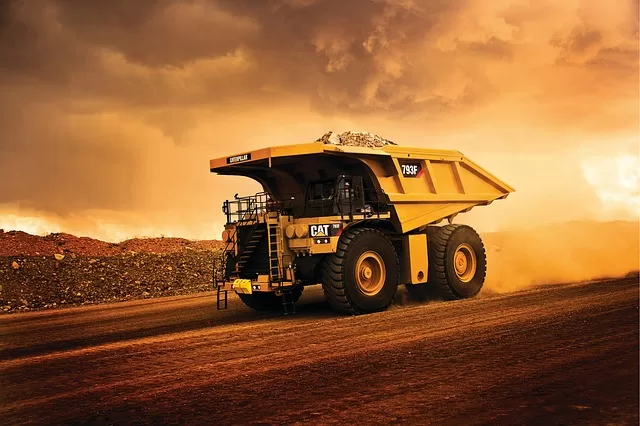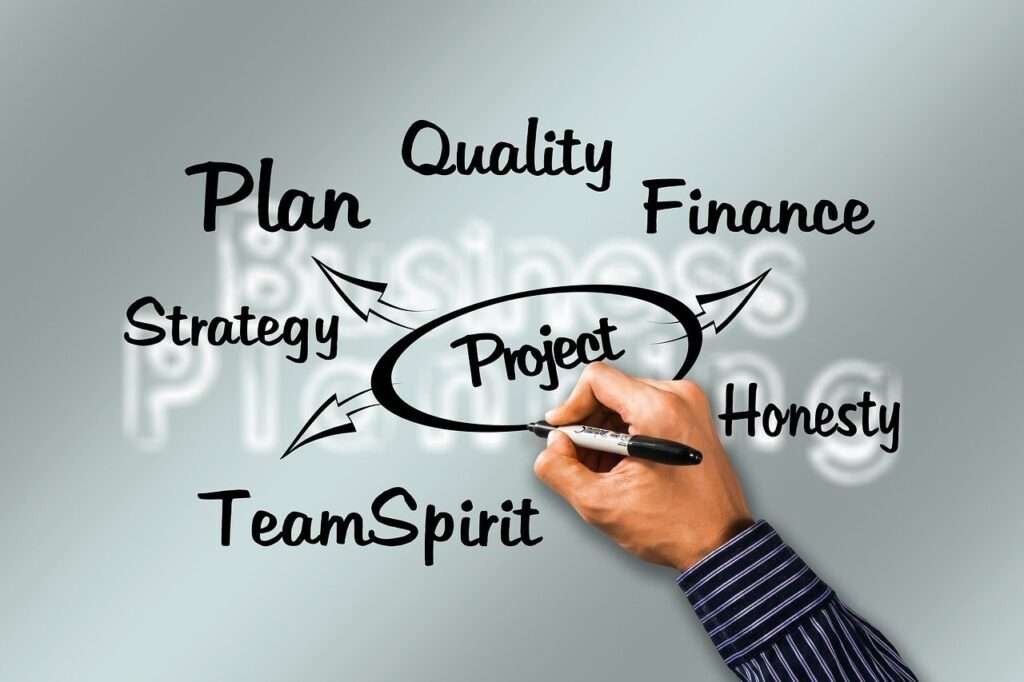Learning Pathways for Maintenance Management Development.
Organisations can ensure that their future maintenance department leaders have the necessary skills and capabilities to navigate the challenges and complexities that come with being a Manager by providing learning pathways to ensure maintenance leadership development.
A well-designed learning pathway considers the organization’s specific needs and goals, best practises, as well as the individual aspirations and strengths/weaknesses of each employee.
A series of quality learning pathways will help identify the core competencies and leadership qualities required for an employee to learn and work their way to the top of their organisational.
This includes skills such as strategic thinking, problem solving, communication, and decision making to name a few.
By clearly defining these competencies, organisations can better align their maintenance leadership development programs and initiatives.
Secondly, a learning pathway establishes a structured approach to learning and development. It outlines the various stages and milestones that aspiring maintenance department employees must meet in order to advance in their careers, especially where leadership roles are sought.
This could include attending training programs, participating in mentoring or coaching sessions, taking on stretch assignments, or pursuing further education.
By breaking down the development process into manageable steps, individuals can track their progress and ensure focus is placed in the right areas. It’s important for employees to make sure they are acquiring the necessary skills and experiences at the right timeliness according to their career goals.
A good learning path encourages continuous learning and development. It encourages people to take responsibility for their own development and seek out opportunities to broaden their knowledge and skills.
This could include attending conferences, joining professional associations, or conducting self-study.
Organisations that foster a culture of lifelong learning can ensure that their current and future maintenance leaders are constantly adapting and evolving to meet the changing demands of the business environment.
Furthermore, a learning path simplifies succession planning and talent management. Organisations can groom future maintenance department leaders from within by identifying high-potential individuals and offering them targeted development opportunities.
This not only ensures a smooth leadership transition, but also fosters a sense of loyalty and commitment among department employees, who see a clear career path and opportunities for advancement within the organisation.
7 Important Skills for Effective Maintenance Leadership.

Effective maintenance leadership requires a diverse set of skills that go beyond just technical or supervisory expertise.
With this in mind, let’s take a closer look at some of the key skills that individuals need to develop to be successful leaders:
1. Communication Skills: The ability to communicate effectively is one of the most important maintenance leadership skills. Leaders must be able to communicate their ideas clearly and concisely, whether in a one-on-one conversation or in a large group setting. They must also be good listeners who can understand the needs and concerns of their team members and stakeholders.
2. Emotional Intelligence: Emotionally intelligent maintenance team leaders are able to comprehend and control both their own and other people’s feelings. They can successfully negotiate challenging interpersonal situations and forge close bonds with their team-mates thanks to this ability. Leaders with emotional intelligence are also able to empathise with others and make decisions that consider the feelings and well-being of those they oversee.
3. Adaptability: Maintenance Leaders need to be flexible in the fast-paced, constantly-evolving business environment of today. When faced with fresh possibilities and challenges, they must be able to swiftly modify their tactics and strategies. This calls for adaptability, a growth mentality, and the capacity for creative and flexible thought.
4. Problem-Solving: Maintenance Leaders frequently encounter difficult issues that call for creative and time sensitive fixes. They need to be adept problem solvers who can analyse circumstances, pinpoint underlying issues, and create workable plans of action to get past challenges. This calls for creativity, critical thinking, and the capacity to work with others to identify the best solutions, sometimes under substantial pressure.
5. Decision-Making: Maintenance Leaders are in charge of making crucial choices that can affect their teams and the overall business. They must possess the capacity to quickly and accurately assess options, obtain and analyse pertinent data, and make well-informed decisions. Making wise decisions also means knowing how to control risks and weigh options over the long run.
6. Strategic Thinking: Successful maintenance department leaders possess a strategic mindset and understand the big picture. They can understand their organisations’ future directions and develop strategies to achieve those objectives. Their strategic thinking will entail analysing production needs, identifying opportunities and threats, and allocating resources and capabilities to promote reliability, availability and overall production success.
7. Team Building: Maintenance Team leaders must be able to form and grow high-performance teams. This includes hiring the right people, creating a positive and inclusive work environment, and providing the necessary support and resources for team members to succeed. Strong interpersonal skills, as well as the ability to motivate and inspire others, are essential for effective team building.
Maintenance Leadership is a continuous journey of growth and development.
Successful team leaders and managers are always looking for opportunities to enhance their skills and expand their knowledge.
What is expected from a Maintenance Manager?

Maintenance Department Leaders need to possess strong leadership and management abilities to effectively oversee teams and processes. This includes skills such as communication, decision-making, problem-solving, and conflict resolution.
By developing these skills, maintenance department leaders can inspire and motivate their teams, drive performance, and ensure the achievement of organizational goals.
Effective communication is a fundamental skill for Maintenance Managers. They must be able to clearly articulate their expectations, provide feedback, and listen actively to their maintenance team members.
By fostering open and transparent communication channels, Maintenance Managers can create a positive work environment where ideas and concerns can be freely shared.
In addition to communication, decision-making is another critical skill for Maintenance Managers. They must be able to analyse information, situations, evaluate options, and make informed decisions achieve the best possible outcomes that are also aligned with the organization’s objectives.
Effective decision-making requires a balance between considering various perspectives and gathering relevant data to ensuring success.
Maintenance Mangers need to have Conflict Resolution skills.
Conflict resolution is a crucial skill for frontline managers. In any team there will be some form of conflict from time to time. Conflicts can arise due to differences in opinions, work styles, or personal issues.
Maintenance Managers must be able to address and resolve these conflicts in a fair and impartial manner, ensuring that all parties involved feel heard and respected.
By promoting a collaborative, interdependent and inclusive work environment, maintenance managers can minimize conflicts and foster teamwork.
Maintenance Managers Are Always Time Poor.
Maintenance managers must also possess strong organizational and time management skills. They are responsible for overseeing multiple tasks, setting priorities, and ensuring that targets are met and compliance is achieved.
By effectively managing their time and resources, maintenance managers can optimise productivity and ensure the efficient execution of maintenance and projects.
Maintenance Managers Oversee multiple teams and processes.
Frontline management skills are essential for maintenance managers, gives them the tools to effectively oversee teams and processes.
Quality learning pathways help Maintenance Managers develop these skills and this in turn helps create a positive work environment, drive performance, and contribute to the overall success of the maintenance department, as well as the entire organisation.
It’s important that Maintenance Managers also possess the right level of technical expertise to effectively communicate with their maintenance team members and key organisational stakeholders.
When Maintenance Managers have a thorough understanding of the technical aspects of their organisation, they can clearly articulate goals, expectations, and challenges to their teams.
This clarity helps to foster a sense of trust and confidence among team members, as they know their Manager is knowledgeable and capable.
Their technical expertise will help Maintenance Managers to anticipate and address potential issues before they arise. By having a comprehensive understanding of machinery, equipment, and operational requirements, maintenance managers can identify potential bottlenecks, inefficiencies, or risks in the production process before there is a need to deal with them in a reactive manner.
This proactive approach will have Maintenance Managers guiding their superintendents and supervisors towards implementing the right preventive measures and mitigate potential disruptions, ensuring smooth operations, minimizing downtime and keeping the business spending within budget.
A Maintenance Manager is also a Safety Manager.
Ensuring a safe work environment is paramount for any organization. Maintenance Managers play a crucial role in leading their maintenance teams in developing and adhering to safe work practices and procedures. They have to prioritise safety, promote a culture of safety awareness, and take proactive measures to mitigate risks.
By fostering a safe work environment, maintenance managers can protect their employees, enhance productivity, and reduce the likelihood of accidents or incidents.
One of the great ways Maintenance Managers can demonstrate their commitment to safety is by providing adequate training and resources to their employees.
This includes conducting regular health, safety and environment training sessions, ensuring that all employees are aware of best ways to identify potential hazards in their work environment, and equipping them with the necessary knowledge and skills to mitigate these risks.
Maintenance Managers should be assessing the effectiveness of safety measures within their department on a regular basis and make sure necessary improvements are being completed to ensure that the workplace remains safe and secure.
The Maintenance Manager is responsible for establishing clear and well-communicated safety policies and procedures. They need to work closely with their maintenance team leaders to develop comprehensive safety guidelines that cover all aspects of the work environment.
Such policies must be easily accessible to all employees and contractors. Safety policies and any related procedures need to be regularly reviewed to ensure they remain up-to-date and relevant.
By clearly outlining expectations and providing guidelines, maintenance managers can empower their employees within their department to take ownership of their safety and the safety of others that are either working in or visiting their work sites.
The Maintenance Budget Rests With the Maintenance Manager.
One of the key drivers of Maintenance Management is the annual budget. This involves identifying all the planned maintenance costs of the organization and projecting them over 12 months. It is also quite common to have a rolling 5 year maintenance budget.
The budget plan will include all the necessary expenses such as employee salaries, office rent, utilities, and equipment maintenance, as well as their best guess towards equipment failures or corrective maintenance requirements over the year.
Once the maintenance budget is approved, the maintenance manager needs to make sure that their leaders have the skills and knowledge to monitor and track the actual versus planned expenses regularly.
This allows them to compare the actual financial performance with the projected budget, identify any deviations and then report on what went wrong.
By analysing these deviations, maintenance department leaders can identify areas where process or machinery irregularities are causing higher than expected costs, negatively affecting performance, and increasing their risk profile.
Equipped with this information, they can then take necessary actions to address the issues.
The Maintenance Manager is responsible for Succession Planning.
Just as a quality learning pathway would have helped a Maintenance Manager obtain their position, they must ensure that others can follow in their footsteps.
Unless a Maintenance Manager never takes vacation or becomes ill while on the job, they will occasionally need to delegate authority to one of their department leaders.
In fact, it’s a good idea to give each department leader a turn running the department.
This helps drive the need for their department leaders to have a quality learning pathway in place and fosters a culture of learning and development.
It’s essential for a Maintenance Manager to encourage everyone within their teams to expand their knowledge and skills through training and professional development opportunities.
This not only benefits the all maintenance team members but also contributes to the overall growth and success of the department.
How to be a well respected Maintenance Manager.

A successful and well respected Maintenance Manager is someone that always leads by example.
They will demonstrate the qualities and behaviours they expect from their team leaders and the members of their teams.
Maintenance Managers should promote integrity, accountability, and dedication and set a positive example for others to follow.
Maintenance managers should inspire their teams to strive for excellence and reach their full potential.
This is made possible by their strong communication skills, ability to recognise and leverage individual strengths, conflict resolution, fostering a learning culture, and leading by example.
By promoting these skills, Maintenance Managers can create a highly effective and efficient work environment, drive performance, and achieve success in all areas.
It all starts with a quality learning pathway.
A quality learning pathway help individuals develop their leadership skills and succession planning is essential for any organisation that wishes to be successful long term.
Maintenance Managers need to provide a clear progression of learning and development for employees within their department, it allows them to identify potential maintenance department leaders and groom them for the future.
Providing maintenance team members with the platform to proactively take charge of their own development benefits everyone.
In most cases employees within the maintenance department should be able to identify the skills and competencies needed for their desired leadership roles.
The Maintenance Manager and team leaders can help them realise additional learning opportunities and give them support to help realise their goals.
It’s good for employees to have a self-directed approach to learning in a lot of cases as it empowers them and demonstrates their initiative and commitment to their professional growth.
However, most employees viewing horizon of what the future within their organisation will need from them if promotion is desired is limited, so helping them with developing their learning pathway is a great idea.
Guide your employees on the variety of learning methods and resources that are available to them either internally or externally.
This would include formal training programs, workshops, seminars, online courses, mentoring programs, job rotations, and challenging short term assignments that might be on offer in the future.
Individuals are able to develop a well-rounded skill set when their maintenance manager and team leaders help them pursue the most relevant range of learning and role opportunities.
This provides them with both the theoretical knowledge and practical experiences to achieve their long term career goals.

